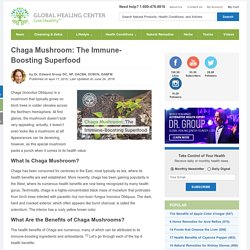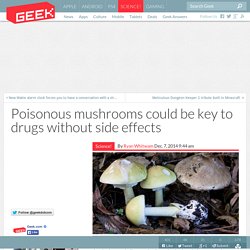

The Chemical Constituents and Pharmacological Actions of Cordyceps sinensis. 6 Kombucha Health Benefits Your Gut Is Begging For. Well known as a good source of probiotics, kombucha is a sweet tea beverage fermented with yeast and bacteria.

It is commonly called the “immortal health elixir” and it’s more popular now than ever before. In fact, the market is expected to grow at a healthy pace of approximately 25% per year until 2020. In addition to its strong, robust flavor, kombucha is an incredible tonic with many health-promoting properties. Let’s explore six ways kombucha supports gut health. 1. True kombucha contains a significant amount of live probiotic strains including Lactobacillus.[1] Lactobacillus is a genus of friendly bacteria that encourage normal digestion, soothe the digestive tract, and promote easy bowel movements. 2.
The human body requires and uses oxygen to carry out its normal processes and metabolic byproducts like free radicals are unavoidable. 3. The immune system is an integral component of the body’s ability to heal, defend, and maintain itself. 4. 5. 6. Learn About Chlorella Algae and How It May Help Detox Heavy Metals. What is Spirulina? A Protein-rich Top Superfood Algae. Benefits of Spirulina. Kombucha Health Benefits - Dr. Leonard Coldwell.com. Have you heard of Kombucha, the beverage the ancient Chinese called the “Immortal Health Elixir?”

It’s been around for more than 2,000 years and has a rich anecdotal history of preventing and fighting cancer, arthritis, and other degenerative diseases. Made from sweetened tea that’s been fermented by a symbiotic colony of bacteria and yeast (a SCOBY, a.k.a. “mother” because of its ability to reproduce, or “mushroom” because of its appearance), Kombucha didn’t gain prominence in the West until recently. In the first half of the 20th century, extensive scientific research was done on Kombucha in Russia and Germany, mostly because of a push to find a cure for rising cancer rates.
Russian scientists discovered that entire regions of their vast country were seemingly immune to cancer and hypothesized that the kombucha, called “tea kvass” there, was the cause. German scientists picked up on this research and continued it in their own direction. About the health benefits of Kombucha: SOURCE: Medicinal Mushrooms - Ancient Knowledge, Modern Healing. By Gavin Bragg Guest Writer for Wake Up World Mushrooms have been used by all ancient cultures all over the world.

They were highly revered in ancient Peru, where they “used the power of mushrooms medicinally, nutritionally and spiritually.” In Meso America, the “A. muscaria [mushroom] has been shown to have been deeply engrained in the religious cultures.” Even more amazing, Amadou mushrooms have the ability to store fire! Medicinally speaking, mushrooms are one of nature’s greatest gifts. But where medical mushrooms really excel is with immune system modulation. (3) Ancient Knowledge, Modern Healing Different mushroom have different properties so, to get the full spectrum of all the different kinds of healing agents mushrooms offer, it is best to utilise a blend of several mushroom species. Immunomodulating agents in medicinal mushrooms include: PolysaccharidesGlycoproteinsErgosterols (steroid-like compounds that create vitamin D in sunlight)Triterpenoids”(1) References: About the author:
Chaga Mushroom: The Immune-Boosting Superfood. Chaga (Inonotus Obliquus) is a mushroom that typically grows on birch trees in colder climates across the Northern Hemisphere.

At first glance, the mushroom doesn’t look very appealing; actually, it doesn’t even looks like a mushroom at all! Appearances can be deceiving, however, as this special mushroom packs a punch when it comes to its health value. What Is Chaga Mushroom? Chaga has been consumed for centuries in the East, most typically as tea, where its health benefits are well established.
More recently, chaga has been gaining popularity in the West, where its numerous health benefits are now being recognized by many health gurus. What Are the Benefits of Chaga Mushrooms? Health Benefits Of Reishi Mushroom. Paul Stamets - The Future is Fungi [how to save the planet] Mushrooms and onions contain immune-enhancing polysaccharides and phytonutrients. Poisonous mushrooms could be key to drugs without side effects. Some species of mushroom are perfectly safe to eat, but others that look very similar can land you in the hospital or worse.

In studying how these fungi manage to be so poisonous, a team of Michigan State University researchers may have found a way to create a new generation of pharmaceuticals with highly targeted effects. Imagine chemotherapy drugs with no side effects, or antibacterial agents that can clear out severe infections without damaging other tissues. That’s what poisonous mushrooms could do for medicine. Specifically, it’s an enzyme used by these fungi to manufacture poisons. This research used mushrooms of the genus Amanita, which includes the notorious death cap mushroom. Toxic compounds like α-amanitin are what are known as cyclic peptides. The MSU team was able to pull apart the Amanita toxin and study the way they are produced. POPB itself isn’t a drug that will cure anything. Now read: DNA-programmed paper can test for Ebola and a whole lot more.